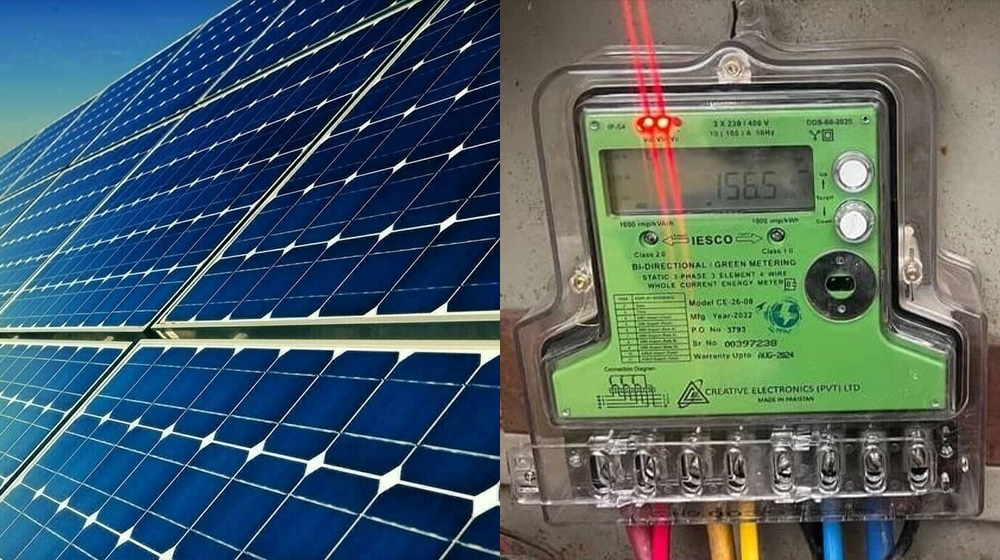Is Solar Still Worth It in Pakistan? Rising Taxes Leave Consumers Worried
 Solar energy was once the ultimate money-saving solution for Pakistanis, but 2025 has brought a wave of policy shifts that are making homeowners and businesses rethink their investments. With new taxes on solar users, reduced net metering benefits, and shifting government incentives, is solar still a smart choice? Many early adopters are now facing unexpected costs, leaving potential buyers hesitant. In this article, we break down the latest tax changes, government policies, and whether going solar still makes financial sense. Before making or regretting your investment, get the facts here!
Solar energy was once the ultimate money-saving solution for Pakistanis, but 2025 has brought a wave of policy shifts that are making homeowners and businesses rethink their investments. With new taxes on solar users, reduced net metering benefits, and shifting government incentives, is solar still a smart choice? Many early adopters are now facing unexpected costs, leaving potential buyers hesitant. In this article, we break down the latest tax changes, government policies, and whether going solar still makes financial sense. Before making or regretting your investment, get the facts here!
Tax Incentives and Import Duties
In the fiscal year 2024-2025 budget, the Pakistani government introduced substantial tax incentives to promote solar energy adoption. Duties and taxes on importing machinery, plants, and equipment related to manufacturing solar panels, inverters, and batteries were relaxed. This initiative aims to make solar technology more affordable and accessible to the public.
Additionally, the government maintained a sales tax exemption on solar panels (PV modules) for the financial year 2024-2025, as outlined in the finance bill presented in June 2024. This measure was implemented to encourage the widespread adoption of solar energy solutions. 
Proposed Taxes on Solar Consumers
In April 2024, the Central Power Purchasing Agency (CPPA-G) proposed imposing a tax of Rs. 2,000 per kilowatt on both residential and commercial solar panel users. For instance, users with a 12-kilowatt system would face a tax of Rs. 24,000. This proposal was submitted to the Ministry of Energy for consideration.
Net Metering Policy Adjustments

Recent policy adjustments have affected net metering consumers. The buyback tariff for solar rooftop consumers was revised from Rs. 27 per unit to Rs. 10 per unit. This change aims to create a balanced tariff structure while encouraging solar energy adoption. Despite the reduced buyback rate, the government assures that there will be no tax on the electricity units exported to the grid by solar net metering users. However, an 18% sales tax applies to the electricity consumed from the grid, similar to other consumers.
Federal Tax Ombudsman's Directive
In early 2025, the Federal Tax Ombudsman (FTO) directed power distribution companies to impose an 18% sales tax on the gross value of electricity supplied to solar net metering consumers. This decision, citing a revenue loss of Rs. 9.8 billion, mandates taxation on the total electricity consumed, overriding previous net metering deductions. This directive impacts all distribution companies, including LESCO, FESCO, and IESCO.
Government's Stance and Clarifications
The Ministry of Energy has clarified that there is no ban on net metering and that the government is considering proposals to protect consumers from additional financial burdens. Efforts are underway to safeguard the investments of approximately 150,000 to 200,000 net metering consumers. 
What's For Solar Customer?
Pakistan's commitment to renewable energy is evident through tax incentives and policy adjustments aimed at promoting solar energy adoption. While proposed taxes and revised net metering rates have raised concerns, the government's clarifications and ongoing initiatives reflect a balanced approach to fostering sustainable energy solutions while addressing fiscal responsibilities.



You must be logged in to post a comment.